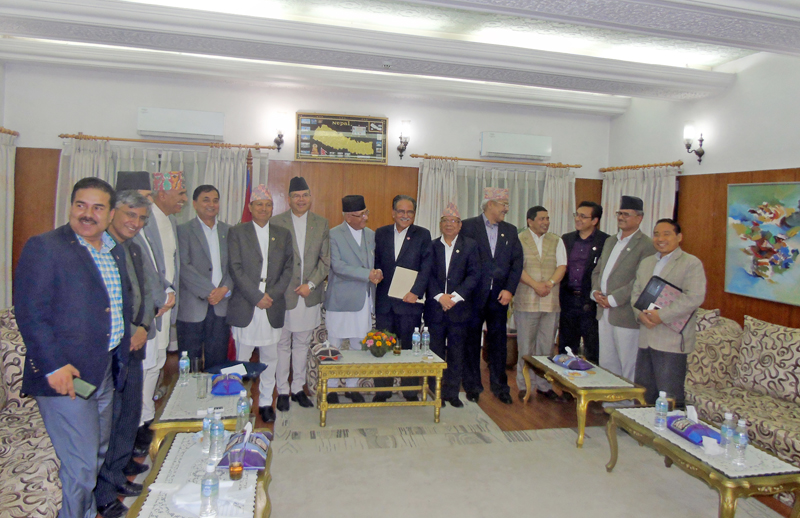Rights bodies flay ruling parties' deal on Nepal's civil war crimes
KATHMANDU: Leading human rights groups on Friday criticised the recent agreement signed between Nepal's two major ruling parties -- CPN-UML and UCPN-Maoist, saying it was against the current transitional justice process and aimed at protecting perpetrators of abuses in the decade-long civil war.
In a joint statement, the International Commission of Jurists (ICJ), Human Rights Watch, and Amnesty International said that the Nepal's leading political parties should not bargain away justice for victims of serious human rights abuses as part of an agreement to form a new coalition government.
The two ruling parties had struck the agreement after an understanding to save the ruling coalition for the time being on May 5.
The agreement threatens to entrench impunity for those who planned and carried out killings, enforced disappearances, torture, and other crimes in Nepal’s civil war, just as the country’s long delayed transitional justice process is finally about to get under way.
The agreement was signed just to shield perpetrators of abuses in the decade-long civil war, it said.
“This political deal between the ruling parties is extremely damaging to the credibility of an already deeply politicised and flawed transitional justice process in the eyes of Nepal’s victims,” said Sam Zarifi, Asia-Pacific director at the ICJ.
“Moreover, it flies in the face of Nepal’s international human rights obligations and the rulings of its own Supreme Court by trying to wash away the crimes of the conflict by attempting to coopt pending criminal cases and provide blanket amnesty to alleged perpetrators.”
The Supreme Court of Nepal has, in several instances, reaffirmed the principle under international law that amnesties are impermissible for serious international crimes. However, Nepal authorities have consistently ignored the orders from the country’s highest court, the human rights groups said.
Nepal has an obligation under international law to investigate and, where sufficient evidence exists, prosecute crimes under international law, including torture and other ill-treatment, enforced disappearance, extrajudicial executions, war crimes, and crimes against humanity.
Article 2 of the International Covenant on Civil and Political Rights (ICCPR) and Article 14 of the Convention against Torture and Other Cruel, Inhuman and Degrading Treatment or Punishment (CAT) – both treaties to which Nepal is a party – require states to ensure the right to an effective remedy and reparation for victims of human rights violations.
“The political deal by the ruling parties to grant amnesty to those responsible for conflict-era human rights abuses is a callous attempt to disregard Nepal’s international treaty obligations by violating victims’ right to an effective remedy,” said Brad Adams, Asia director at Human Rights Watch.
“Nepal’s political deal jeopardises the war victims’ last best hope for justice and accountability.”
“Nepal’s ruling parties cannot bargain away victims’ rights to truth, justice, and reparation by using the commissions as a substitute for their legal obligations to investigate and prosecute human rights abuses through the criminal justice system,” said Champa Patel, South Asia Regional Office director at Amnesty International.






